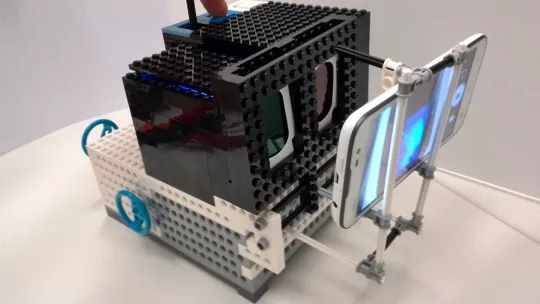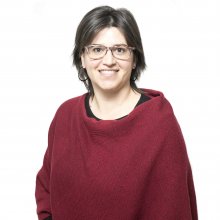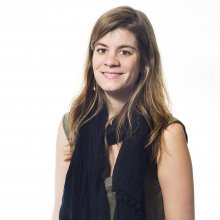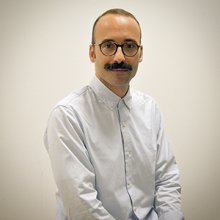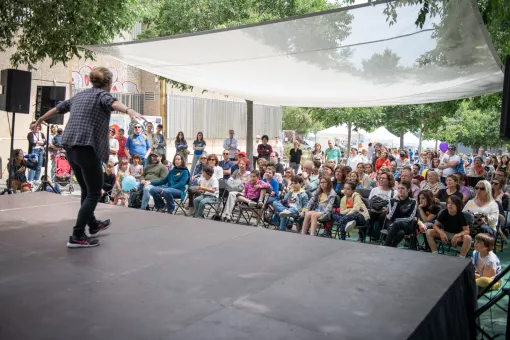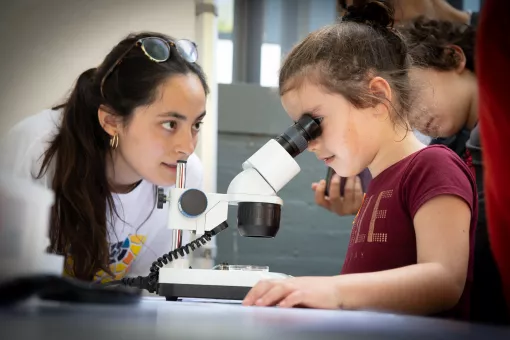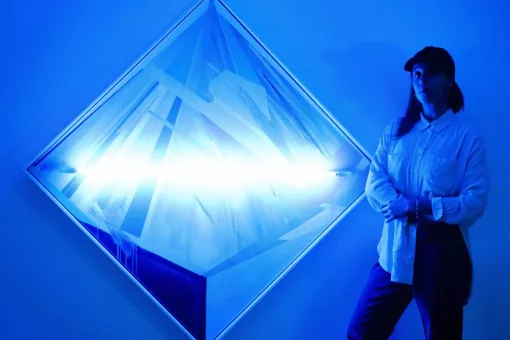Images
IRB Barcelona is to participate in the first edition of YoMo Barcelona by giving a Lego fluorescence microscope workshop on March 1.
It is a unique and creative project that brings the latest 3D imaging technology to schools, high schools and universities.
Julien Colombelli, co-inventor of the microscope and Core Facility Manager of the Advanced Digital Microscopy Laboratory, will be coordinating the workshop.
IRB Barcelona will officially present the fluorescence microscope named LegoLish-Mot (Lego Light Sheet Microscopy-Motorized) on 1 March (from 09:30 to 16:30), during the first Youth Mobile Festival Barcelona (YoMo Barcelona), which is included in the programme of events of the 2017 Mobile World Congess. The YoMo programme of activities include “Biomedicine close up”, a workshop organised by IRB Barcelona that allows students to examine various biological samples (cells, human tissue or model organisms) under an optical microscope.
Held from 27 February to 2 March in Hall 1 of the Barcelona Trade Fair (La Fira), YoMo Barcelona will welcome 20,000 children (around 4,000 per day) from 280 schools across Catalonia and Spain to a huge showcase of science and technology. With 65 stands and 200 activities, the Festival will provide options in Science, Technology, Engineering, Arts (& Design), and Mathematics (STEAM) for everyone.
“Biomedicine close up” at YoMo Barcelona
During the workshop, students will be able to use the LegoLish-Mot, an innovative light sheet microscope (a kind of microscope that illuminates the sample with a sheet of light) built with Lego blocks. “This technology is driving the transformation of science by enabling the imaging of larger samples at the scale of millimetres to centimetres using very simple optics,” highlights Julien Colombelli, Core Facility Manager of the Advanced Digital Microscopy Laboratory at IRB Barcelona and co-inventor of LegoLish-Mot.
LegoLish-Mot is the second prototype of LEGOLish, a “unique and creative project that brings the latest 3D imaging technology in a simple and visual form to the public at large and to school children,” explains Julien Colombelli, also co-inventor of the first LEGOLish prototype, together with Jordi Andilla (Institute of Photonic Sciences (ICFO)), Sébastien Tosi (IRB Barcelona), and Jim Swoger (Centre for Genomic Regulation, CRG).
“We have managed to remove the optical complexity from the microscope and bring a lego-based system that offers students the possibility to take images or videos themselves with their own mobile phones, yet functioning in 3D and using fluorescence on real biological samples,” remarks Julien. “Building a research microscope from Lego blocks will hopefully motivate schools and research labs to get one and to use it for educational purposes”, adds the co-inventor.
In parallel, during the interactive activities (20-30 minutes) included in “Biomedicine close up”, students will also be able to observe healthy samples and those corresponding to various diseases: cancer, diabetes and development disorders in the fruit fly Drosophila melanogaster (an animal model to study developmental processes). The session will introduce participants to theoretical concepts, which will be gauged to the age of the audience, and provide the opportunity to observe samples under the optical microscope.
The YoMo IRB Barcelona activities will be coordinated by Julien Colombelli and Muriel Arimon, Public Engagement and Science Education Officer, and will be conducted by researchers and PhD students at IRB Barcelona.
Microscopy, seeing to understand
Light Sheet Microscopy is the most important breakthrough in 3D fluorescence microscopy. This new technique allows the recording of images in vivo over several days without damaging the sample. And, much of the optimisation of this technology has been focused on delivering 3D images of very large samples at unprecedented resolution. Combined with chemical techniques to make samples transparent, full organ and tumour 3D imaging has recently been achieved at cellular resolution.
“Compared to many other fluorescence methods, such as confocal microscopy, that have been used in research labs for 30 years, Light Sheet Microscopy is so simple that it can be showcased to anyone and so hopefully it can clear up the perceived mystery surrounding what goes on in the dark rooms of research institutes,” explains Julien Colombelli. And he points out that “the latest and fully motorized version of LEGOLish will enable labs to test a basic Light Sheet system before deciding to purchase a commercial system”. In the current configuration, results generated by LEGOLish cost about 200 to 1000 times less than those produced by a commercial microscope.
About IRB Barcelona
Founded in 2005 by the Government of Catalonia and the University of Barcelona, the Institute for Research in Biomedicine (IRB Barcelona) is “Severo Ochoa Centre of Excellence”, since 2011; the seal was renewed in 2015. The 23 groups and seven scientific platforms are devoted to basic and applied research with the common goal of conducting multidisciplinary projects that address important biomedical problems affecting our society, with special emphasis on cancer, metastasis, Alzheimer, diabetes and rare diseases. The institute is home to more than 400 employees from 36 countries. IRB Barcelona's ultimate objective is to translate research results to the clinic and has already established three biotechnology spin-off companies to this end. IRB Barcelona is located at the Barcelona Science Park. IRB Barcelona is part of the Barcelona Institute of Science and Technology (BIST).
About IRB Barcelona
The Institute for Research in Biomedicine (IRB Barcelona) pursues a society free of disease. To this end, it conducts multidisciplinary research of excellence to cure cancer and other diseases linked to ageing. It establishes technology transfer agreements with the pharmaceutical industry and major hospitals to bring research results closer to society, and organises a range of science outreach activities to engage the public in an open dialogue. IRB Barcelona is an international centre that hosts 400 researchers and more than 30 nationalities. Recognised as a Severo Ochoa Centre of Excellence since 2011, IRB Barcelona is a CERCA centre and member of the Barcelona Institute of Science and Technology (BIST).



